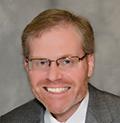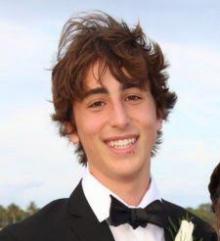
Vero Beach High School on Florida's east coast, has failed to respect the First Amendment.
And now a student --J.P. Krause, a top student, rising senior, our client, and the young man who should serve as VBHS senior class president in the coming school year -- understands better why the Constitution requires public institutions, like his school, to respect the constitutional rights of its students.
Because here the public school punished J.P. for a humorous campaign speech he made; it disqualified him from the election only after he won the election. Quite the unconstitutional daily double pulled off by the school administrators -- they not only unconstitutionally deemed the third place candidate the winner, but took away the voting privileges of its entire senior body class who elected J.P. president.
The school says he “humiliated” the candidate who came in second by way of his 90-second impromptu campaign speech, a speech given in class with his A.P. U.S. History teacher’s permission. Thanks to a student who recorded the speech and shared it with J.P., we know that he did no such thing. You can see for yourself.
As you can see, the video reflects nothing more than good-natured, All-American campaigning for office. But the school says otherwise. It says it’s broadly written “anti-harassment” code of conduct allows it to disqualify J.P. from the race because of this speech.
The Constitution says differently. As we explained in our letter to the school administration on J.P.’s behalf:
The First Amendment protects speech that might offend others. In Tinker v. Des Moines Independent School District, 393 U.S. 503, 512 (1969), the United States Supreme Court recognized “neither students nor teachers shed their constitutional rights to freedom of speech or expression at the schoolhouse gate.”
The Court held that a school may not censor a student’s speech unless it caused a substantial disruption of, or a material interference with, school activities. J.P.’s speech caused no substantial disruption of, or material interference with school activities or the rights of other students. His speech simply asked his fellow students for their support in the upcoming student election.
To be sure, if a student gives a speech that is lewd, vulgar, or profane, then the school can sanction him. See, e.g., Bethel School District No. 403 v. Fraser, 478 U.S. 675 (1986). But that is not remotely the case here.
J.P.’s speech did no more than involve light-hearted humor by associating his opponent in satirical manner with current political and cultural events. His speech directly referenced national political campaign topics, such as Communism, raising taxes, and President Trump’s stated intention to build a wall on our country’s southern border. Nobody could have taken his comments seriously; that is, no reasonable person believes his fellow candidate for the presidency is a Communist, wants to raise the students’ taxes, or favors Sebastian River High School rather than her own high school. Yet VBHS Principal Shawn O’Keefe claims in an email to J.P.’s mother that J.P.’s speech violated the harassment policy because he “publicly humiliated” his opponent.
Accepting that preposterous claim for the sake of argument, the Supreme Court has held time and again, both within and outside of the school context, that the mere fact someone might take offense at the content of speech is not sufficient justification for prohibiting it. See Tinker, 393 U.S. at 509. As subsequent federal cases have made clear, Tinker requires a specific and significant fear of disruption, not just some remote apprehension of disturbance. Here, we have no fear of disruption, let alone a specific or significant fear.
We further explained that the school’s code of conduct policy regarding offensive speech violated the First Amendment, as well:

The Student Handbook broadly defines harassment as “any threatening, insulting, or dehumanizing gesture, use of data or computer software, or written, verbal or physical conduct directed against a student or school employee that: 1) Places a student or school employee in reasonable fear of harm to person or damage to property, 2) Has the effect of substantially interfering with a student’s education performance, opportunities, or benefits, 3) has the effect of substantially disrupting the orderly operation of a school.” Handbook at 30-31.
The policy’s broad ban on “verbal conduct” is unconstitutional, both on its face and as applied here. We know it is unconstitutional, because a U.S. Supreme Court justice has said the same about a similar school policy. In Saxe v. State Coll. Area Sch. Dist., 240 F.3d 200 (3d Cir. 2001), the U.S. Third Circuit Court of Appeals, in an opinion written by then Judge, now Justice Samuel Alito, struck down a school district’s harassment policy as overbroad, holding that even speech that is defined as “harassing” may enjoy First Amendment protection.
In Saxe, Judge Alito wrote that the school’s harassment policy improperly swept in those “simple acts of teasing and name-calling” that had previously been held to be protected by the First Amendment. The policy’s language in that case barred speech that has the “purpose or effect of” interfering with educational performance or creating a hostile environment. It ignored the constitutional requirement that a school must reasonably believe that speech will cause actual material disruption before prohibiting it.
Judge Alito explained that even if the speech created a “hostile environment” that “intrudes upon ... the rights of other students,” it is not enough that the speech is merely offensive to some listener, because “there is no categorical ‘harassment exception’ to the First Amendment’s Free Speech Clause.
The school’s harrassment policy -- like the one at issue here -- had no threshold requirement of pervasiveness or severity, and therefore it could cover any speech about someone the content of which could offend someone. This could bar “core” political and religious speech (like J.P.’s political speech here). Provided such speech does not pose a realistic threat of substantial disruption, the Third Circuit held, it is within a student’s First Amendment rights.
Likewise here, J.P.’s speech has been targeted by the school district’s harassment policy, a policy that is similarly overbroad and unconstitutional. J.P. did not create a substantial disruption -- to the contrary, the video of the incident reflects that the ‘speech’ allowed for 90 seconds of lighthearted fun, and clever political satire, in a high-level academic class.
What’s particularly striking about this misuse of a speech code is the fact that the student handbook promises to deliver a much more robust institution for its public school students.
In the handbook, VBHS and the Indian River County School District claim the school must “prepar[e] all students to thrive in college, career, and community endeavors.” In the 21st Century, we should expect to hear opinions we may not personally agree with and stand ready to engage those opinions in the marketplace of ideas. Vero Beach High School does its students no service to punish a student for innocent humor conducted as part of a school election, with an A.P. U.S. History teacher’s permission.
To the contrary, the school’s misuse of its Code of Conduct unjustly steals the election and brands his record with a “harassment” charge, unconstitutionally interferes with J.P.’s educational opportunities, and jeopardizes his college admission possibilities.
The classroom has been recognized by the Supreme Court of the United States as the “marketplace of ideas,” and the high court has emphasized the “nation’s future depends on leaders trained through wide exposure to that robust exchange of ideas.”
High school students, particularly those campaigning in a school election for senior class president, cannot be punished for innocuous humor and political satire of the sort J.P. engaged in. The Constitution forbids it. PLF optimistically believes that VBHS administration and the local school board will think better of the decision to punish J.P. and reverse that decision.
Mark Miller is the managing attorney of the Pacific Legal Foundation's Alantic Center, based in Palm Beach Gardens. Super Lawyers named Miller a Florida Super Lawyer for 2014-15 and 2015-16. He is vice-president of the Martin County Bar Association and serves as an adjunct scholar for the James Madison Institute in Tallahassee.
READ MORE FROM SUNSHINE STATE NEWS


